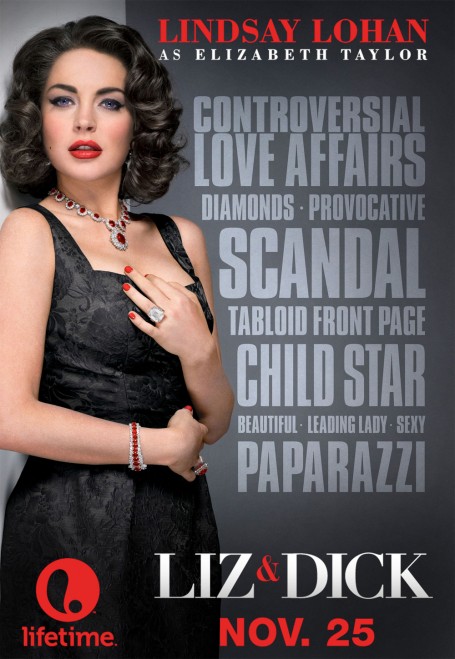
The best thing to be said about LIZ & DICK is that, for a Lifetime movie, it’s actually pretty good. I don’t need to bore you with the reasons why I have seen many more Lifetime movies than your average heterosexual male, but if you take my word for it we can get through this together a lot quicker. So let the record show that, by the standards of a Lifetime movie, LIZ & DICK is well above average. However, by the standards of actual movies that should be considered releasable in movie theaters, it’s atrocious. Keep in mind, when I say that, you’re reading words typed by a man who saw BABY GENIUSES in a movie theater. To spell out overtly my implication: LIZ & DICK is not even as good as BABY GENIUSES.
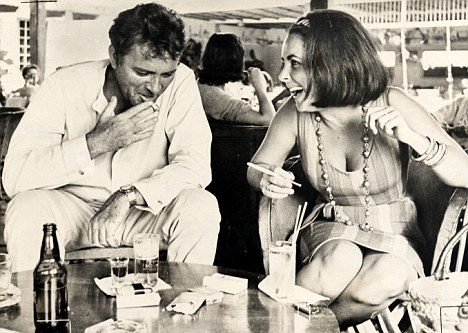
LIZ & DICK is inspired by the love affair between Elizabeth Taylor and Richard Burton, two of the most famous people of the previous century. She outlived him by many years and proved to be the more lasting icon, but his was a momentous career in its own right. He was a revered Shakespearean actor who made his share of memorable movies, my favorite of them (naturally) being WHERE EAGLES DARE with Clint Eastwood. Both Burton and Taylor were megastars when they hooked up, and the combination of stardom and scandal, as LIZ & DICK makes great pains to point out, created one of the first big paparazzi booms in Hollywood history.

There’s definitely a story here, but LIZ & DICK scarcely manages to properly acknowledge the kind of topics that might give it weight, such as Burton’s alcoholism and Taylor’s activism. In this movie, Burton’s drinking is treated as a tic, and Taylor’s main emotional motivation seems to be her affinity for shiny objects.
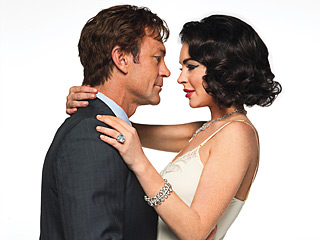
LIZ & DICK opens with a Dean Martin song, amidst tabloid-esque shots of the titular couple interspersed by the lightbulb flares of an old-fashioned camera. These are important cues! In case you didn’t know, this story takes place in the mid-twentieth century. In case you didn’t know, these people are famous. This being a Lifetime movie, it is under two minutes before the first awkward slow-motion close-up of Lindsay-as-Liz. The filmmaking is serviceable at best. Nobody knocks the camera off the tripod or anything, but there’s no inspiration here.
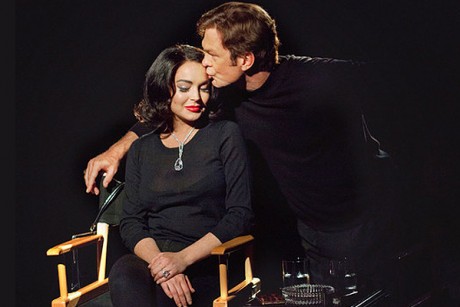
The haphazard structure of LIZ & DICK is occasionally framed by commentary which is apparently beamed in from the netherworld, where the couple ruminating on their relationship to an unseen interviewer against a black tarp is intercut with scenes of their first meeting and the subsequent courtship. The first act of LIZ & DICK takes place during the filming of CLEOPATRA, a massive production that made history for all the wrong reasons. The movie was a historic expenditure for 20th Century Fox, which made back money but not enough. The whole thing was overshadowed by the Burton/Taylor affair, but LIZ & DICK does nothing to explain the significance of CLEOPATRA in the context of its place in American film – in fact, it looks for all the world like a community theater production.
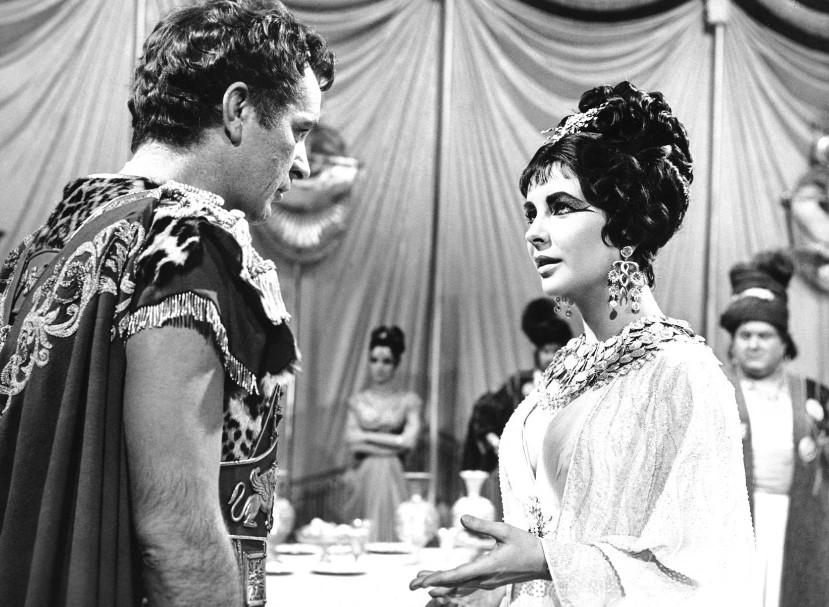
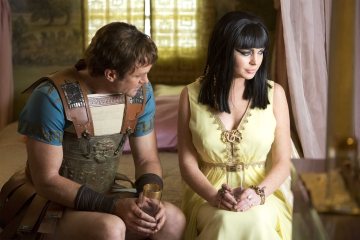
For the role of Richard Burton, LIZ & DICK went with an actor named Grant Bowler, best known to American audiences (if at all) as the captain of the freighter on that one season of Lost. The performance isn’t terrible, but the resemblance is. Grant Bowler as Richard Burton looks more than anything like Jason Bateman playing Alec Baldwin. If only the producers had consulted me, and ponied up the money to get
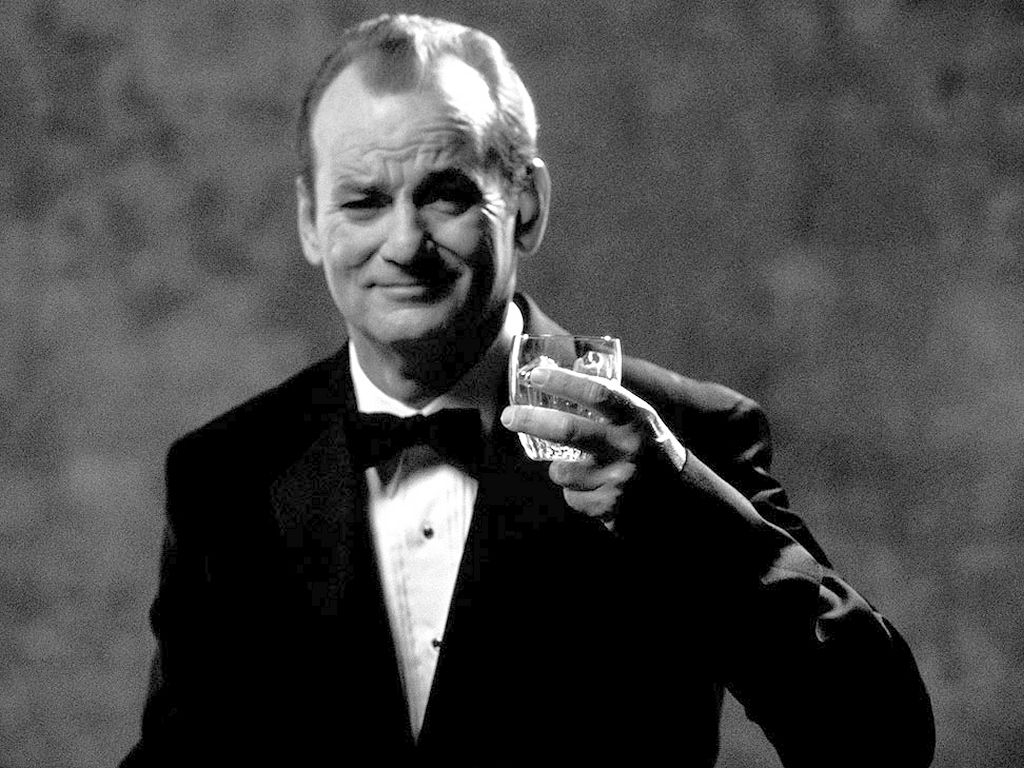

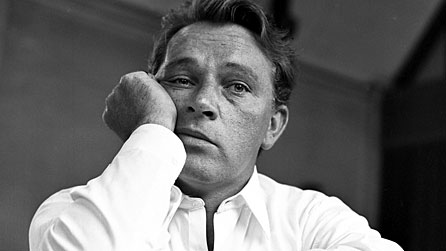
Bill Murray. I’m serious. It was the only choice, or else it shouldn’t have been done at all. Forget FDR, this is the real-life person Bill Murray was meant to play. There’s an entire subplot in SCROOGED devoted to Bill Murray’s resemblance to Richard Burton. Sure, there are other guys who could have played the role (Michael Fassbender and Aidan Quinn are two off the top off my head), but think of how classic a Bill Murray/Lindsay Lohan LIZ & DICK could have been.

That’s if these filmmakers were willing to dive all the way into camp. But that’s the problem, isn’t it: LIZ & DICK is not nearly campy enough. There aren’t many memorable lines, no truly whacked-out scenes. Take my word on this one, guys, all Lifetime movies are this disappointing. They flirt with camp but don’t have the deranged inspiration needed to get all the way there. And if LIZ & DICK fails at camp, it goes without saying that it fails at verisimilitude.
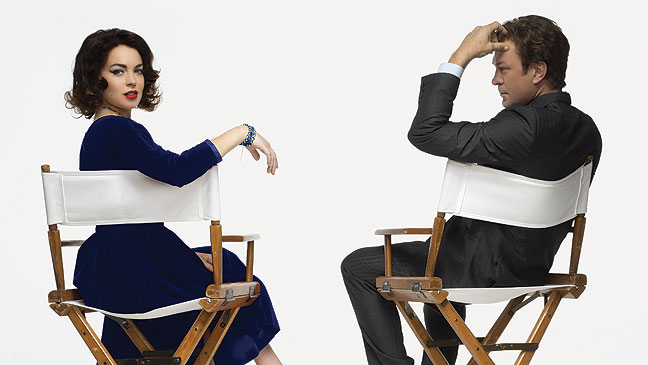
Compare this to a movie like THE AVIATOR and the cheapness of the whole enterprise is seen in harsh light. Scenes set at the legendary Italian studio Cinecittà look like they were filmed in a parking lot off Melrose (and probably were). A movie about film history should feel like cinema, not like TV, or else it’s a joke, and not a good one. LIZ & DICK feels small-screen in all the worst senses of the term.
The producers also spared every expense when it came to the supporting cast. Nothing against any of these actors, but they seem to be the best available choices, rather than the most fitting likenesses or the most forceful performers. CLEOPATRA writer/director Joseph Mankiewicz is played by Brian Howe (Nikita, NCIS: Los Angeles), a veteran TV actor with a long resume of cops and politicians.
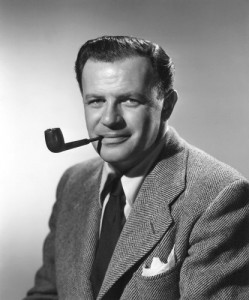
British film director Anthony Asquith is played by Charles Shaughnessy, the dad from The Nanny. (To be fair, this casting could be big news to the Lifetime crowd.)
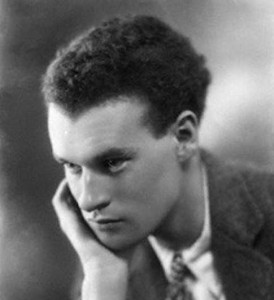
Legendary screenwriter Ernest Lehman is played by David Eigenberg (Justified, Law & Order: SVU, Chicago Fire), an actor I like a lot but who only gets one scene. (Liz and Dick stage-fight at a party in order to audition for one of Lehman’s projects. That sounds more fun than the actual scene.)
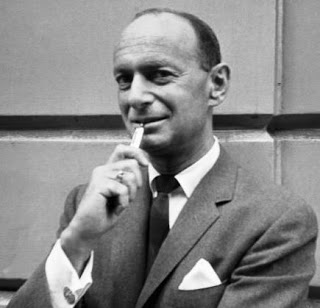
Famed studio head Darryl Zanuck is played by Creed Bratton – look, we all love Creed, he’s the Ralph Wiggum of The Office, and he gave a nice performance in a small movie called TERRI – but he doesn’t exactly add weight to his single scene, which looks (and plays) like a Funny Or Die video.
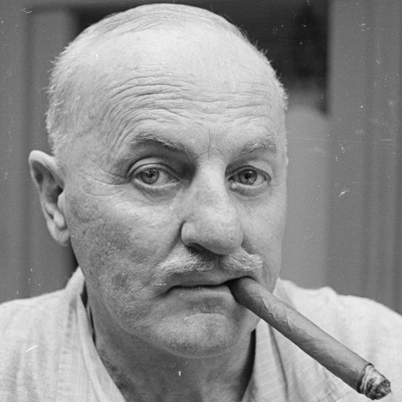
The only truly compelling actor in the entire movie is Theresa Russell, who serves a perfunctory role as Liz’s mother Sara. (She co-starred in THE RAZOR’S EDGE and WILD THINGS, both with Bill Murray, I’m just saying…) She deserves more of a showcase but she isn’t given one. Her big scene is to pass a note to Liz from Dick in one of the movie’s better bad scenes (where Liz pouts “I’m bored!” — the note is mom’s solution). She also gets the chance to briefly emote when Liz learns of Dick’s death and promptly flops to the floor. It’s as if everyone involved realized that Lohan couldn’t carry the moment which is why they had Theresa Russell standing by, ready to jump in. Of course they cut away immediately, moving ever on to the next scene, the next wardrobe change. This movie isn’t really engineered to favor any of these other actors. It’s all about Lindsay.
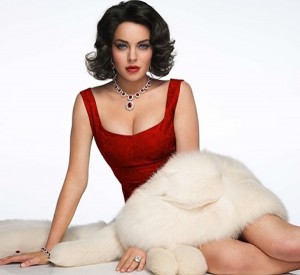
Yeah, Lindsay Lohan. Held off on really getting into this as long as I could, because there’s not a lot of complimenting to be done. In fact, I think it’s officially time to stop saying “Well, she was good in MEAN GIRLS.” I don’t know anymore if the Robert Downey Jr. redemption many of us were hoping for with this girl is ever coming. It’s easy to see why Lindsay Lohan would want to take on the role of Elizabeth Taylor – it’s fun to dress up like one of the most famous movie stars of all time, I’m sure, and she probably sees parallels between herself and Elizabeth Taylor in the relentless scrutiny of her personal life in the public arena. (The scene where Liz flashes her bum to a crew of paparazzi, whether or not it ever happened, is so Lohan it’d be redundant to even comment upon it further.) And to be honest, they do manage to make Lindsay look the part. She might have made a believable Elizabeth Taylor, if she never spoke a word. Unfortunately, she talks plenty.
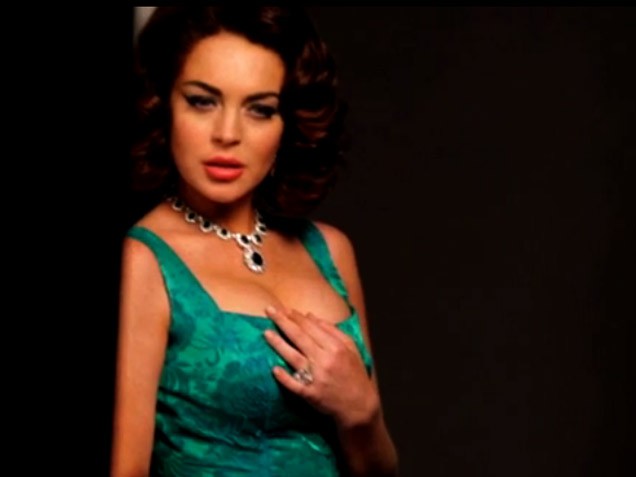
Remember when I said she was good in MEAN GIRLS? Well if you liked that movie, you’re in luck, because it turns out Lindsay plays a glamorous movie star, even into her forties and fifties, exactly the same way she played a high school student. Lohan’s performance throughout LIZ & DICK is no different than those moments on Saturday Night Live when you become all too aware that the hosts are reading their monologues off cue cards. She’s still trying to put on a show, and you appreciate it, but then again you’d appreciate it much more if she had spent a little more time going over those lines before showtime. In LIZ & DICK, Lindsay Lohan dresses up like Elizabeth Taylor, and she looks okay in the clothes, but a costume isn’t a performance. And Elizabeth Taylor wasn’t a costume. She was a true-blue movie star, with presence, wit, and grace. Whatever was going on off-screen, she managed to light it up when she was on it.
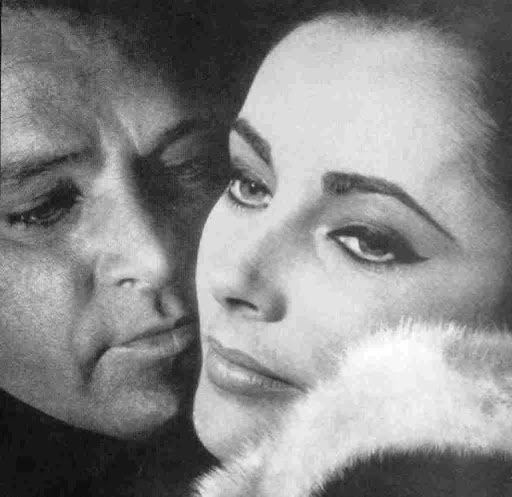
The other difference, which I will be rude enough to point out, is that despite the drama and turmoil, Elizabeth Taylor had a genuine, important screen career. She was first and foremost a movie star, beyond her tabloid appeal. The same is not true of Lindsay Lohan. In the period covered by LIZ & DICK, Elizabeth Taylor worked with major, world-class, studio-system directors – John Huston, Vincente Minelli, George Stevens, George Cukor – and important directors of the 1960s such as Richard Brooks and Mike Nichols. She was in some legitimate, timeless classics.
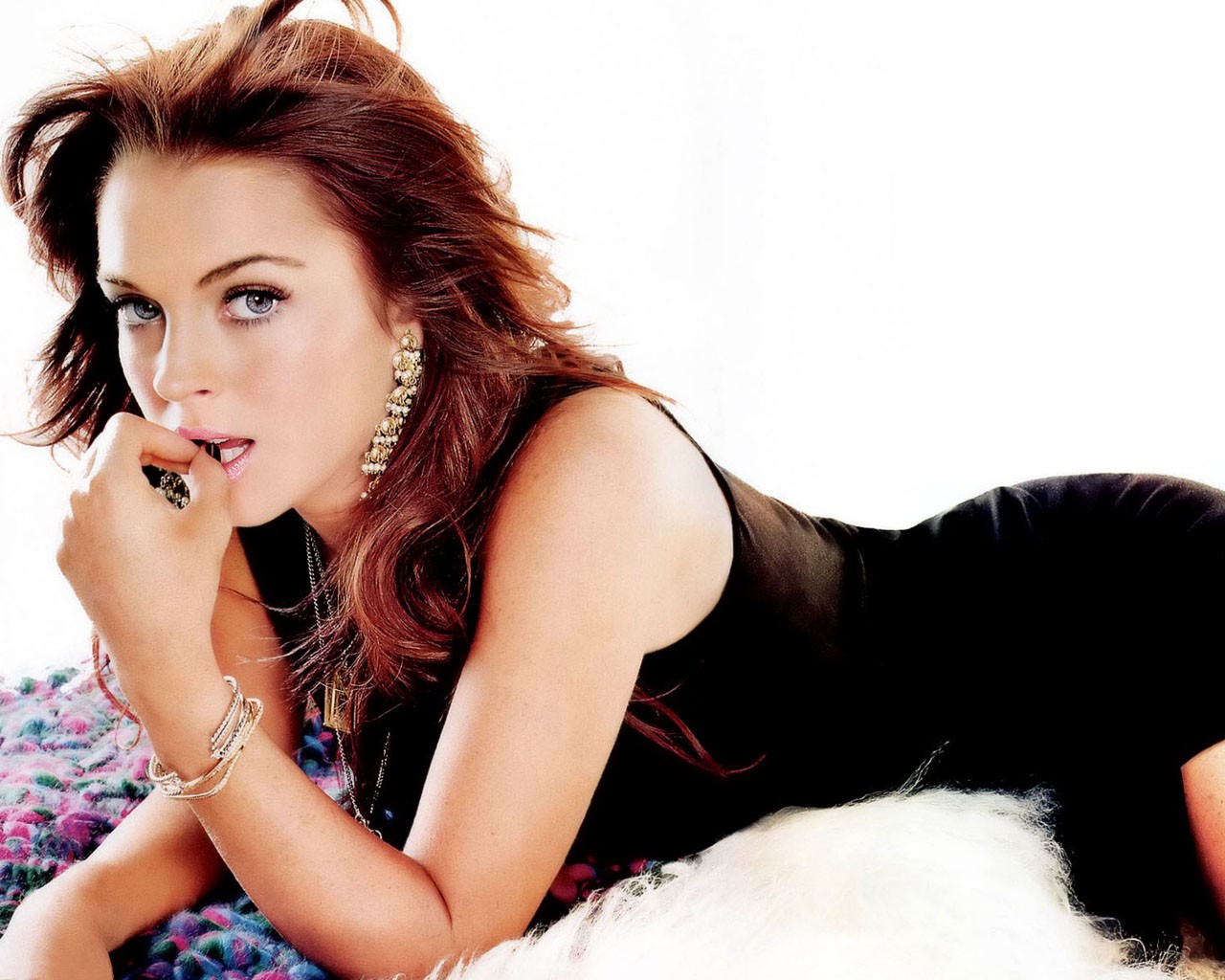
By contrast, Lindsay Lohan’s most notable roles of the past few years were in movies made by Robert Rodriguez and Garry Marshall. Outside of an ensemble role in Robert Altman’s A PRAIRIE HOME COMPANION (in which, to be fair, she was as good as anyone else in the cast, in my opinion), Lohan has not worked for a truly significant, consistent filmmaker, and she’s less and less likely to do so with each arrest or public controversy. Lindsay was a promising young actor who only became a huge name through the tabloids. Elizabeth was a movie star whose fame was only enhanced by the tabloids. That’s a pivotal distinction.

A lot of us who root for Lindsay do so because she has more talent than a Paris Hilton or a Kim Kardashian – the problem is that it’s hard to argue at this point that she has any more talent than a Kerry Washington or a Scarlett Johansson or a Keira Knightley or a Natalie Portman or an Emma Stone (whichever one of those makes the point best to you). There are plenty of young actresses now who take smarter, more artistic risks and end up with better movies as a result. A movie like LIZ & DICK doesn’t make anybody look good, but the joke isn’t on anyone besides Lindsay. And that’s a damn shame.
@jonnyabomb
- [THE BIG QUESTION] WHAT’S YOUR FAVORITE FEMALE ENSEMBLE IN MOVIES? - July 22, 2016
- [IN THEATERS NOW] THE BOY (2016) - January 24, 2016
- Cult Movie Mania Releases Lucio Fulci Limited Edition VHS Sets - January 5, 2016





No Comments